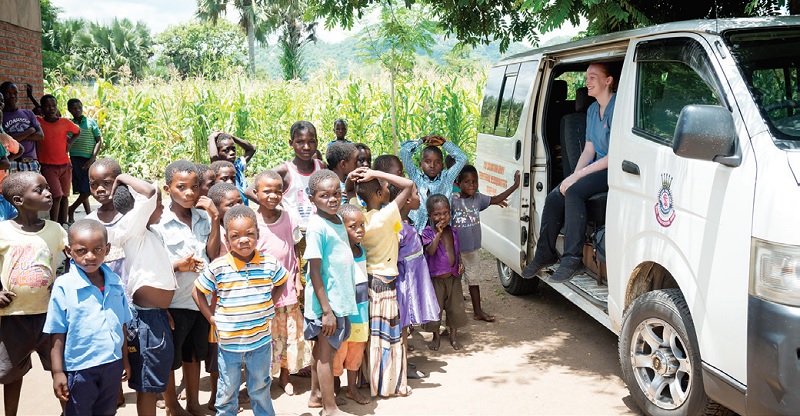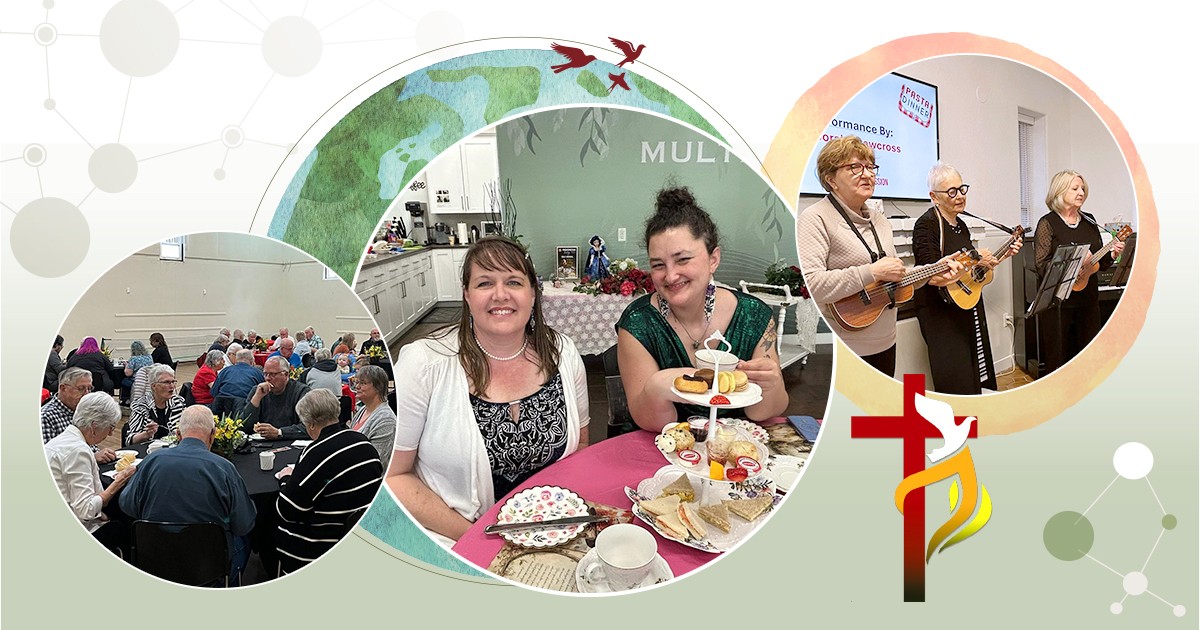"Why me?” I asked myself when my boss, Lt-Colonel Brenda Murray of The Salvation Army’s world missions department, asked me to join her on a three-week tour of sponsored projects in Mozambique and Malawi earlier this year.
I would gather stories for use in a promotional campaign to highlight the work of The Salvation Army, as well as assist our photographer and videographer. By departure time, I was as ready as I ever would be, but that question still nagged me.
Worldwide Reach
The three weeks that followed were a whirlwind of activity, as we travelled across the two countries visiting Salvation Army projects in cities and remote villages. We were on the road for days at a time. For an introvert like myself, this could easily have been overwhelming, but I was too focused on my tasks to be nervous.
In those three weeks, I learned a lot about The Salvation Army and its global reach. Attending church services packed with hundreds of dancing, singing, happy people opened my eyes to the fact that the Army truly is a worldwide church.
But it was especially when we toured the project sites and talked to the people whose lives are being transformed that the Army’s important role really hit home.
True Stories
In a Malawian village, we were greeted by a singing and dancing crowd. The village is the site of the Army’s WASH (water, sanitation and hygiene) Project, which focuses on providing access to clean water and sanitary toilets.
We were shown a dirty stream, where the community previously gathered water for cooking, drinking and bathing. Then we were shown one of the five boreholes that The Salvation Army has drilled in the area.
Before, the community had no option but to relieve themselves in the bush, which polluted the very stream they were drinking from. This caused people to get sick, especially children, who were contracting diarrhea, the leading cause of death for children under five in Africa. Since the boreholes and toilets were installed, cases of diarrhea have decreased dramatically.
In another rural village, we met Joyce, Thomsoni and their six children, who had participated in a Salvation Army agricultural training program. Before the training, they struggled to make ends meet and afford the fees to keep their children in school.
Thanks to the Army, they have expanded their farm from one plot to five, each producing more and better quality crops. Joyce and Thomsoni are now completely self-sufficient. They can feed their large family and sell what is left to pay for school fees and medical care. Their eldest daughter, Florence, took part in a Salvation Army literacy program and is helping to teach the children in the community.
These were just some of the many stories I heard over my three weeks in Africa.
Journey’s End
All too soon, our fact-finding mission came to a close and we returned home to Canada. It’s not an exaggeration to say that I came away a changed person. I’m grateful for things I used to take for granted, simple things such as hot and cold running water.
But I also came away with a greater appreciation for what The Salvation Army does around the world. I tackle my daily duties with an urgency I did not have before, knowing that what we do and the funds we raise really do save lives.
“Why me?” I asked myself before the trip. Now I know.
I would gather stories for use in a promotional campaign to highlight the work of The Salvation Army, as well as assist our photographer and videographer. By departure time, I was as ready as I ever would be, but that question still nagged me.
Worldwide Reach
The three weeks that followed were a whirlwind of activity, as we travelled across the two countries visiting Salvation Army projects in cities and remote villages. We were on the road for days at a time. For an introvert like myself, this could easily have been overwhelming, but I was too focused on my tasks to be nervous.
In those three weeks, I learned a lot about The Salvation Army and its global reach. Attending church services packed with hundreds of dancing, singing, happy people opened my eyes to the fact that the Army truly is a worldwide church.
But it was especially when we toured the project sites and talked to the people whose lives are being transformed that the Army’s important role really hit home.
True Stories
In a Malawian village, we were greeted by a singing and dancing crowd. The village is the site of the Army’s WASH (water, sanitation and hygiene) Project, which focuses on providing access to clean water and sanitary toilets.
We were shown a dirty stream, where the community previously gathered water for cooking, drinking and bathing. Then we were shown one of the five boreholes that The Salvation Army has drilled in the area.
Before, the community had no option but to relieve themselves in the bush, which polluted the very stream they were drinking from. This caused people to get sick, especially children, who were contracting diarrhea, the leading cause of death for children under five in Africa. Since the boreholes and toilets were installed, cases of diarrhea have decreased dramatically.
In another rural village, we met Joyce, Thomsoni and their six children, who had participated in a Salvation Army agricultural training program. Before the training, they struggled to make ends meet and afford the fees to keep their children in school.
Thanks to the Army, they have expanded their farm from one plot to five, each producing more and better quality crops. Joyce and Thomsoni are now completely self-sufficient. They can feed their large family and sell what is left to pay for school fees and medical care. Their eldest daughter, Florence, took part in a Salvation Army literacy program and is helping to teach the children in the community.
These were just some of the many stories I heard over my three weeks in Africa.
Journey’s End
All too soon, our fact-finding mission came to a close and we returned home to Canada. It’s not an exaggeration to say that I came away a changed person. I’m grateful for things I used to take for granted, simple things such as hot and cold running water.
But I also came away with a greater appreciation for what The Salvation Army does around the world. I tackle my daily duties with an urgency I did not have before, knowing that what we do and the funds we raise really do save lives.
“Why me?” I asked myself before the trip. Now I know.










Leave a Comment